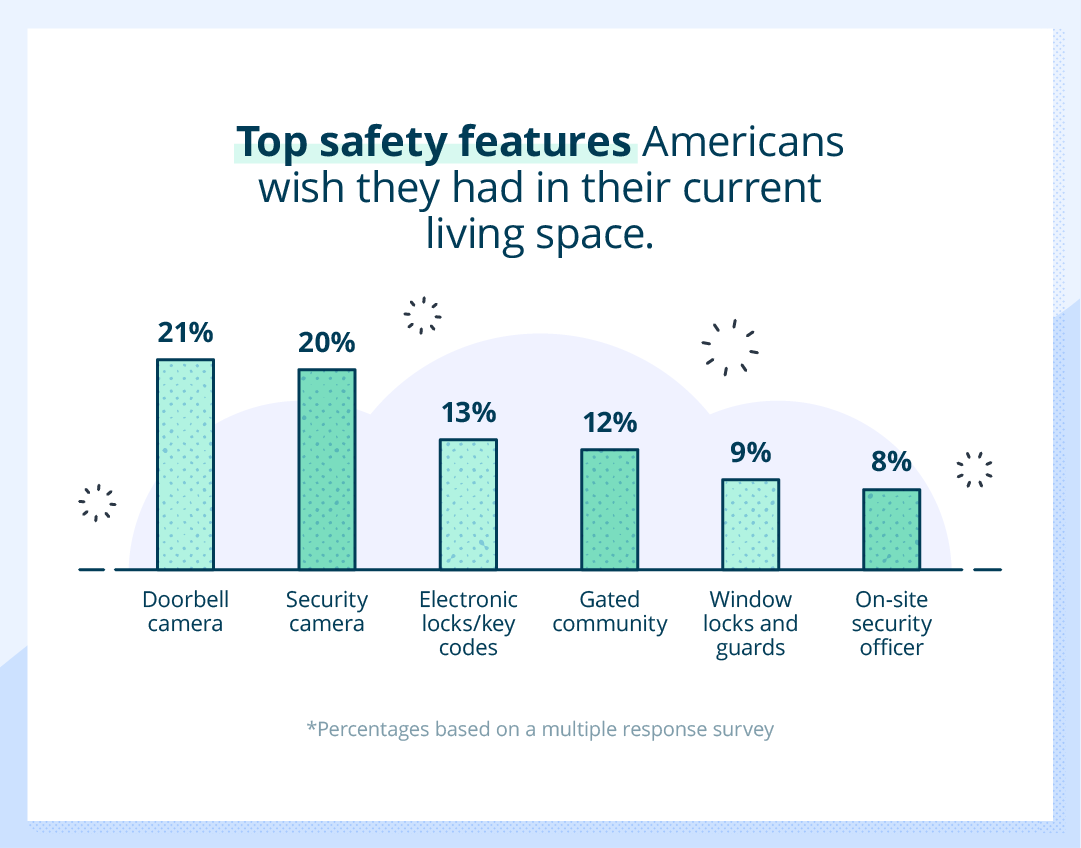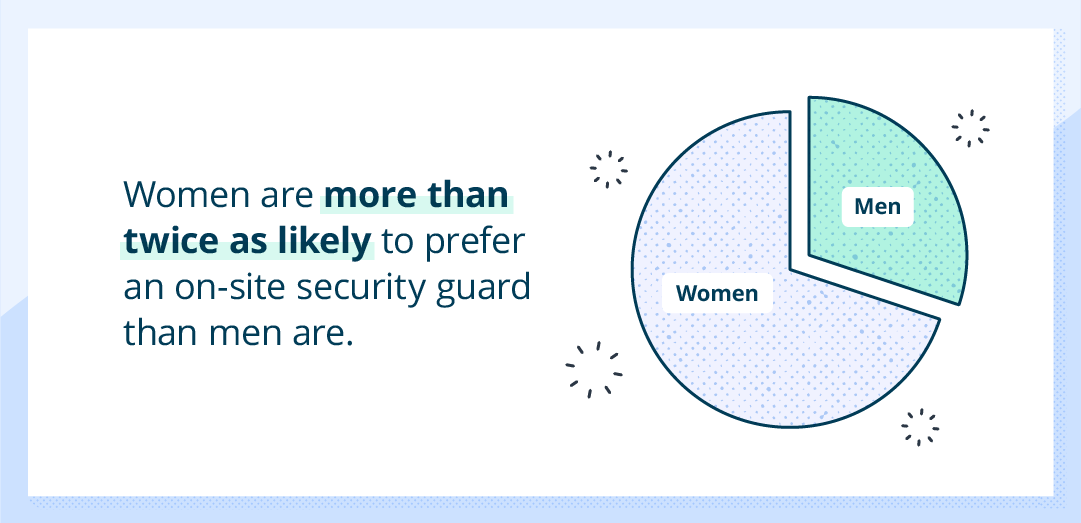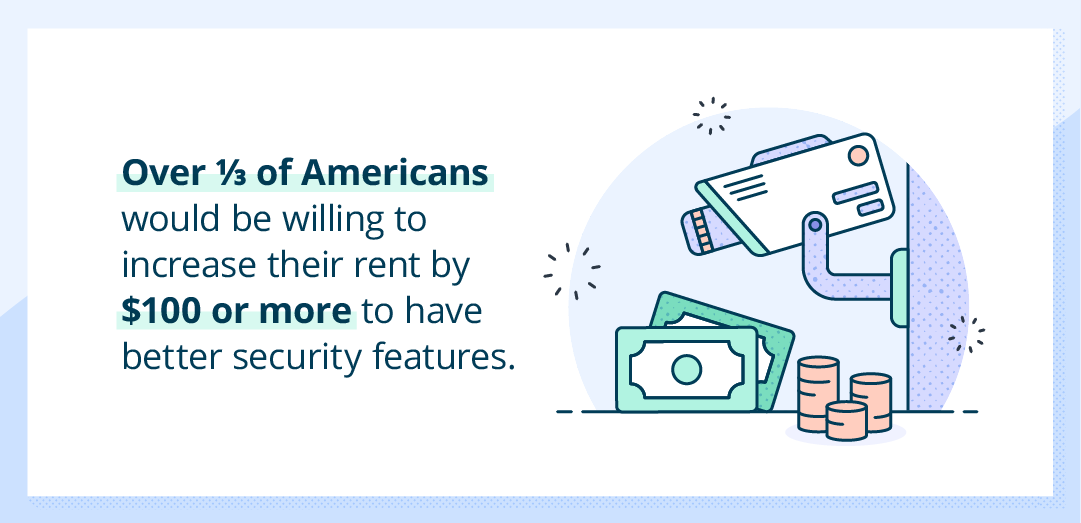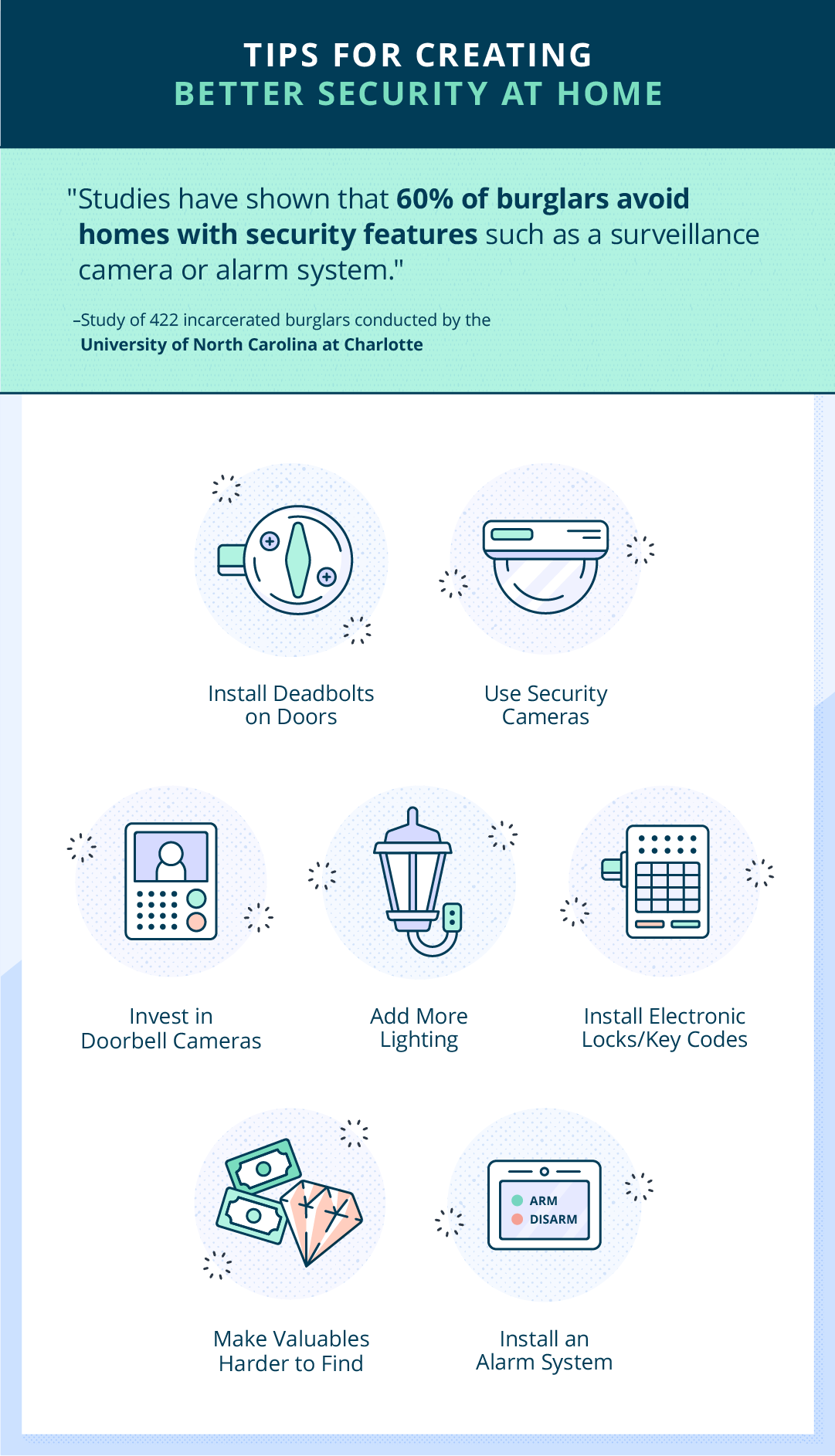7 min read
Pricing Test Blog 2
cell_1 cell_2 cell_3 cell_4 cell_5 cell_1 cell_2 cell_3 cell_4 cell_5

THIS IS A PRICING TEST.
There is a pricing that is $19/per month.
There is a pricing that is $149/per year.
It’s no secret that most Americans want a home they know is safe and prepared for any type of emergency. With so many changes in the past year, more renters and homeowners alike are wanting to feel secure where they live.
We surveyed over 3,000 Americans to find out what home safety features they’re lacking but wish they had. Read on to see what features would make Americans feel safer where they live.
Key Takeaways:
When it comes to feeling safe at home, many Americans aren’t satisfied with their current space’s security features. Of those surveyed, we found that just under 50% of Americans wish they had better safety features.
Top security features Americans want:

Safety can look different for women than it can for men. While sorting our data, we found that out of those who wish they had better security features, women were twice as likely to feel safer with an on-site security officer. We also found that women are more likely to want window locks and guards for safety than men are.

While digging deeper into our survey results, we found that over 50% of respondents who said they wanted more security features would rely on technology to keep them safe rather than more traditional methods.
On the flip side, we were surprised to find that Americans between the ages of 18 and 34 were less likely to want additional safety features compared to those who are 55+.
Despite economic difficulties and housing prices rising, we also found that 33% of Americans would be willing to pay an additional $100 or more for better security features each month. One such safety feature 34% of Americans say they would be willing to pay up to $250 for is any Smart home security product.
Among the 33% that would be willing to pay upwards of $100 or more, we found that men were more likely to be willing to pay more for better security features.

As a landlord, you want your tenants to feel safe and secure so they’ll want to continue living in your property — this is especially important when renting to seniors or those with a disability.
There are many simple renovations you can make to provide this added security for your tenants or for your family, including adding more lighting, installing electronic locks, or using an alarm system.
As a tenant, you want to feel safe at home and know that you’ve done what you can to protect yourself and your family. Because of this, it’s important to ask your landlord various questions, like what kind of security features they’ve put in place.

Installing a deadbolt to your front door is a quick way to improve the security of the space. Most deadbolts cost anywhere from $50 to over $200 and can typically be found at any home improvement store like The Home Depot or Lowes. Many homes have deadbolts because they are easy to use and harder to crack than a normal door handle lock.
According to one study that surveyed 422 burglars across three states, most burglars account for the types of security features on a home, including whether or not there are security cameras. The monthly cost for a security camera ranges from $15 to $40, with additional charges upfront for installation and set up.
Doorbell cameras allow you to view visitors from your phone, tablet, or other device. They typically offer two-way voice communication and motion detection. To get the most features out of a doorbell camera, you may have to pay a monthly fee. However, there are also video doorbells that don’t require this monthly subscription that you can install yourself.
Additional lighting provides extra illumination around the property and acts as a deterrent for criminal activity. There are many different types of lighting you can use, from a few installable porch lights to portable lighting that can be moved around the property.
There are several different types of electronic locks including key codes, radio frequency identification (RFID) locks, and Bluetooth locks. Each type typically has a backup key just in case, but they traditionally work by using your phone, a key code, or other method (like a key fob or card). These locks can typically be installed fairly easily and don’t take too much time to set up.
No matter your preference on the type of alarm, one study lasting five years found that having an alarm system proved to deter crime. Depending on the alarm system you choose, the installation process ranges from simple to more tedious. If you prefer, you can also opt for an alarm system from a trusted company that installs the software for you, but they may also charge a monthly fee for the security service. Make sure you know whether or not this is the case before scheduling the installation.
Many studies have shown that if a house is robbed once, it’s likely to happen again. Making valuables harder to find is a simple way to increase your security and prevent this from happening. You can do this by purchasing a safe for your home to protect valuables or by moving more important documents and items to a bank vault for safekeeping.
If you choose to keep them in your home, put them in a place that is difficult to find if someone were to break in. This could be the back of a coat closet, under some easy-to-pry-up floorboards (if you own the home), or anywhere else you feel wouldn’t be an obvious location.
Feeling safe at home is a high priority for many Americans. For landlords, understanding the security features most people want can help you better meet the needs of your tenants. If you’re looking for good tenants that will appreciate your efforts in keeping them safe, use our tenant screening software to find the right ones for your property.
7 min read
cell_1 cell_2 cell_3 cell_4 cell_5 cell_1 cell_2 cell_3 cell_4 cell_5
13 min read
Rent concessions are common among landlords aiming to incentivize potential or existing tenants to rent their properties. When utilized strategically, these temporary...
10 min read
Managing a single rental property is tough enough. Managing an entire apartment building substantially increases the complexity. Rent collection, lease renewal processing,...
Join the 700,000+ independent landlords who rely on TurboTenant to create welcoming rental experiences.
No tricks or trials to worry about. So what’s the harm? Try it today!